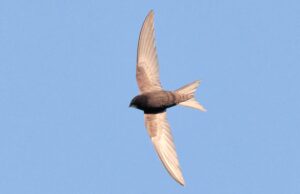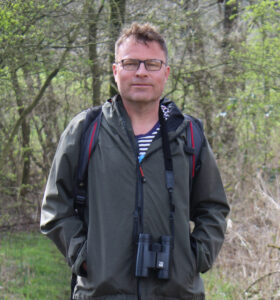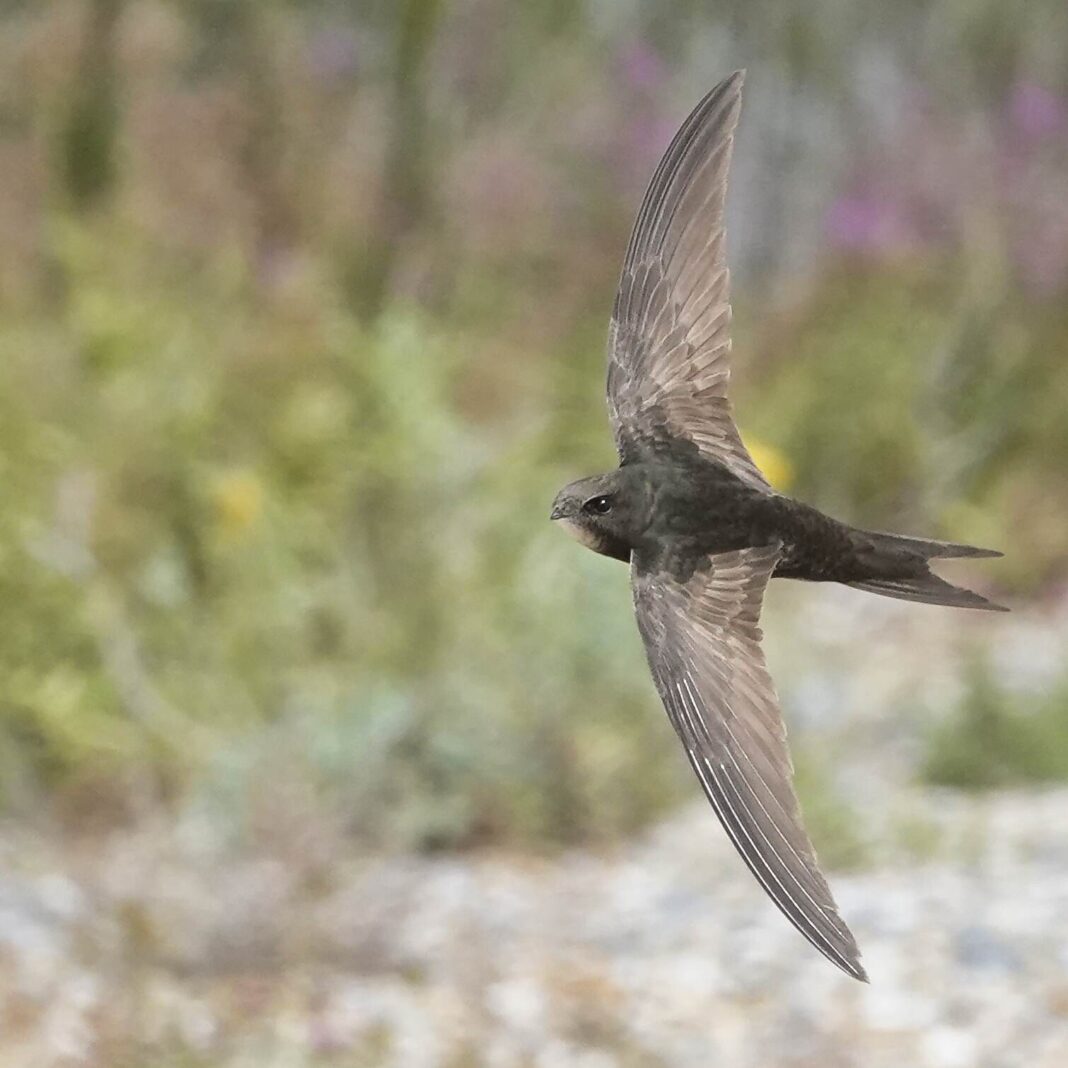“They’ve made it again,
Which means the globe’s still working”
So said Ted Hughes, perfectly capturing the wonder and excitement of seeing the first Swift of the year. How well the earth is functioning these days is under question, but the astonishing life of a Swift is not.
They are the fastest of all birds and built wholly for a uniquely airborne existence. They only land to have young in a nest, and then perhaps begrudgingly. In poor weather adults will leave their young and fly, if need be, hundreds of miles in search of food. Most amazing of all, a fledged Swift will not touch terra firma for two, maybe three years – it feeds and sleeps and lives all of its extraordinary early life in the air.
Swifts appear to be made up almost wholly of wing to fly and mouth to feed. Like dark, scimitar boomerangs they tear strips out of the sky as they scream past at breakneck speed. You’re most likely to see the earliest arriving Swifts scything over water, where the insects they eat congregate. Castle Water or Pett Level are good places to look for them. But, as the season progresses try Winchelsea Church, where breeding birds can be seen sprinting past in the most exciting manner. The superbly sinister ‘Devil Birds’ of St Thomas’ Church.
 Despite all their remarkable adaptations and much help from organisations such as Swift Conservation, Swifts are now on the red list of Britain’s most endangered birds. Crashing insect populations and loss of suitable nest sites are to blame.
Despite all their remarkable adaptations and much help from organisations such as Swift Conservation, Swifts are now on the red list of Britain’s most endangered birds. Crashing insect populations and loss of suitable nest sites are to blame.
Most of our local Swifts arrive in May, having wintered in equatorial and southern Africa, but they’re gone almost as soon as August begins, almost as soon as you’ve realised how beguiling they are.
Editor’s Note: About David Bentley
David has been visiting Rye and especially Rye Harbour Nature Reserve since his university days in Kent. He was delighted to move here 15 years ago. He’s worked for many years in nature conservation and environmental education and can mostly be spotted in fields wearing muddy boots and a Blackpool FC scarf.

Image Credits: Barry Yates , David Bentley .




Wonderful to read this article. How time flies… grab the short moments of the Swift Season I say. Thank you, David Bentley.
It’s great to have wildlife featured, but please reconsider the way you write names.
It’s really best to capitalise names of plants and animals, otherwise you don’t know if it’s a little Ringed Plover or a Little Ringed Plover.
It’s how I was trained as a biologist.
Thanks